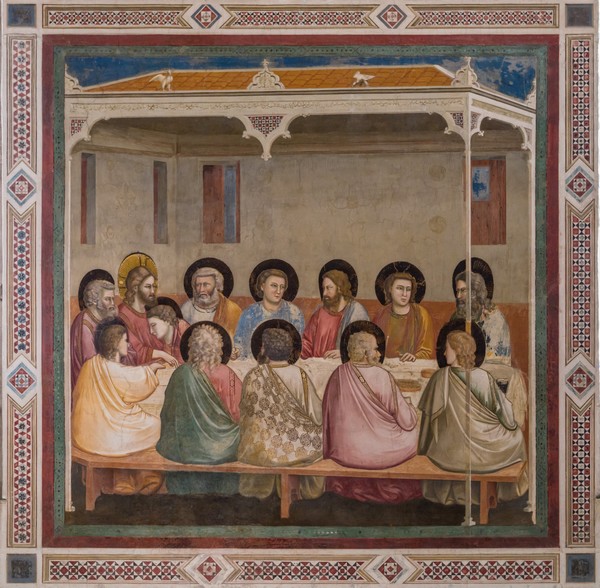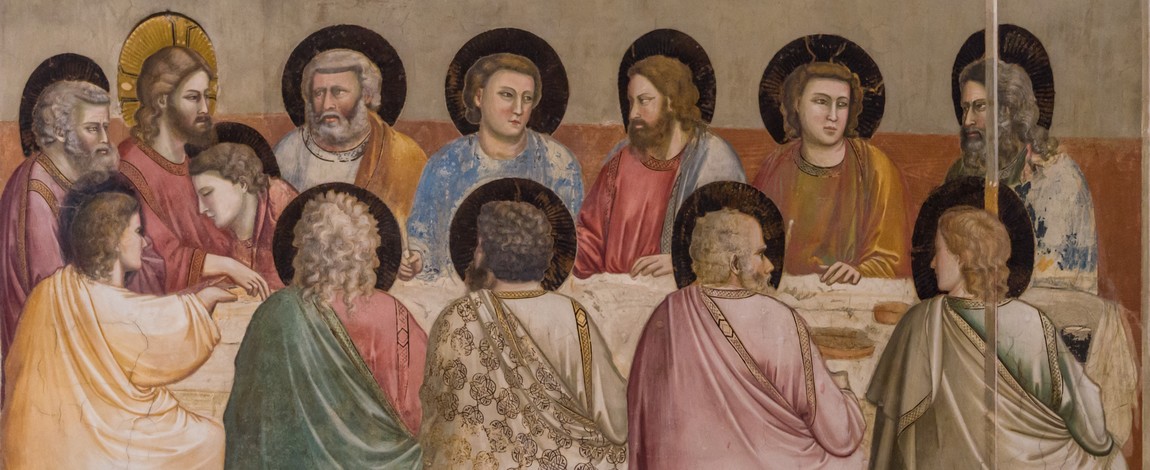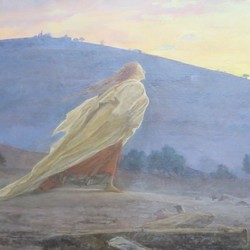
Last Saturday, April 1, we celebrated the 150th anniversary of the birth of Sergei Vasilyevich Rachmaninoff. Although best known for his piano works, his not too wide work (his career as a concertist was also great) includes other genres. For example, he wrote wonderful songs; we have heard some of them here on LiederabI might have chosen one of the composer's best-known songs to celebrate the ephemerides, but the coincidence with Holy Week led me to choose a song that is rarely performed and recorded.
As you might know, I always select a song with a religious subject for these days. Precisely, nine years ago, I shared one by Rachmaninoff, Christ has risen, composed in 1906. To set the song for this week, we have to go a few years forward, until a terrible moment in European history: autumn 1914, a few months after the outbreak of the First World War. The most informed Russian citizens realized that the 19th century was definitively over, and that their particular world of yesterday had disappeared. All citizens, whether well-informed or not, were weighed down by pessimism and the awareness of living through a catastrophe.
In the first months of the war, the badly prepared Russian army suffered greatly. It is estimated that during the first year of the war, there were over 1.5 million casualties. An initiative taken to raise funds for the families of the dead soldiers was promoted, among others, by writer Ivan Bunin. It was a carefully edited volume containing stories by Bunin himself and other authors, illustrations by Ilyia Repin or Leonid Pasternak, and musical works by Alexander Glazunov, Alexander Skriabin, and Rachmaninov, among others. It was published in April 1915, and it seems that, despite its high price, all the copies were sold out in just one day.
Rachmaninoff's contribution to this collection was the song we will hear this week, which was not officially released until 1947, three years after the composer's death. It is called Из Евангелия от Иоанна [Iz evangeliya ot Ioanna, From the Gospel of John]. His text is a single verse from this gospel, “Nobody has a greater love than this one of giving one's own life for his friends”; it took on a new meaning in that bellic context, and Rachmaninov emphasized with his music the last words, "for his friends.".
The fourteen bars of “The Gospel According to John” make it Rachmaninoff's shortest song, and his biblical text twins it with some pieces that his author described as “almost motets,” Brahms's Vier ernste Gesänge. Unlike this work, From the Gospel of John does not have much difussion, so it is likely that you listen to it here for the first time; our interpreters are Sergei Leiferkus and Howard Shelley. It is possible it is not the music you were expecting from Rachmaninov, may I suggest that you listen to it twice or thrice? I find it to be very touching.
Hope you have a good Easter!
da kto duixu svoiu polojit
za drugui svoia.
that a man lay down his life
for his friends.
John, 15:13
And this is the original Russian text:
да кто душу свою положит
за други своя.


















Comments powered by CComment